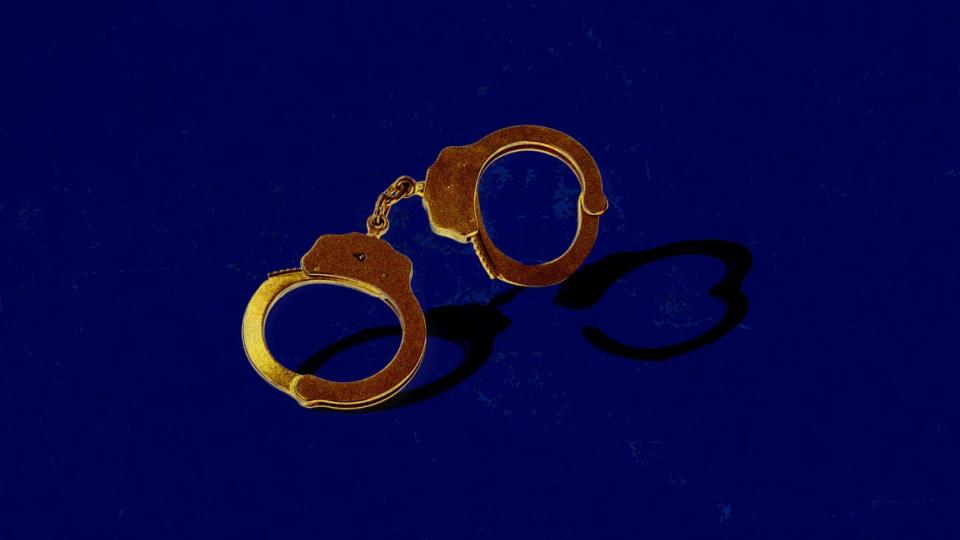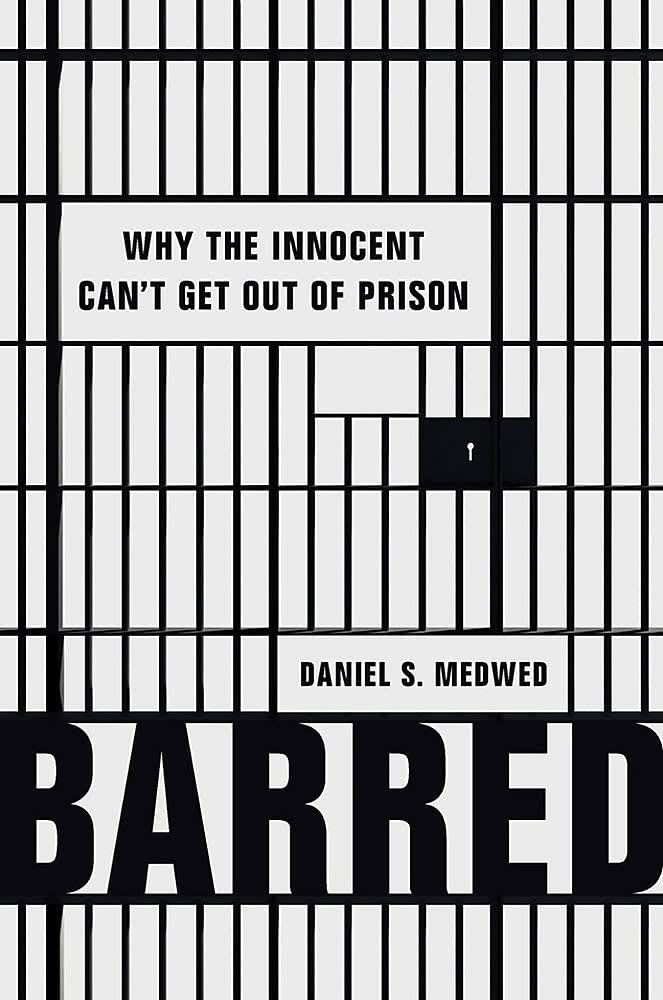He Was Innocent. He Served Eight Years Anyway

It didn’t matter that he was innocent. That the waitress whose restaurant he allegedly robbed identified him from a photo lineup, then recanted her testimony on the witness stand. That the prosecution offered to drop the weapons possession charge against the restaurant’s cook if he fingered him as the robber. That the judge would not allow his defense attorney to show the jury a picture of a lookalike who had recently pled guilty to a half a dozen similar robberies around the time of the one he was on trial for.
All that mattered, it seemed, was that Stephen Schulz had a criminal record, and had refused a plea deal, instead opting to prove his innocence at trial. So for the crime of standing up for himself, Schulz was sentenced to 11 years in prison.
“We talk a lot about the presumption of innocence in this country,” says Daniel S. Medwed, author of Barred: Why the Innocent Can’t Get Out of Prison, “but once you become a suspect, there is a presumption of guilt that attaches, and it’s very difficult to budge.”

Schulz’s is only one of the many cases Medwed, a professor at Northeastern University School of Law, discusses in his book, which is a deep dive into the injustices of our judicial system, particularly the legal barriers it places in the way of those trying to prove their innocence.
From trial to conviction and appeal, it’s all a hot mess of legalese and procedural issues: how prosecutors clear their heavy caseloads by offering plea deals that involve a lesser sentence than if the defendant is convicted in court, causing both the innocent and guilty to accept a deal rather than the crap shoot of a trial (95 percent of criminal cases are now plea bargained); how habeas corpus petitions (literally asking the system to justify why they ‘have the body’ in custody) are regularly denied on appeal (less than .3 percent are approved on the federal level) because SCOTUS has ruled that an innocence claim can be reviewed only if it is also paired with a constitutional issue; and how parole and clemency decisions are basically based on a prisoner’s remorse, or sympathetic features in their cases—such as women who kill their abusers—but not on innocence.
He Spent 24 Years in Prison for Murders He Didn’t Commit. Now He Wants Justice.
Medwed believes the most egregious part of this biased system involves “prosecutorial power,” that “because of the plea-bargaining system, and the prosecutor’s decision to charge you with a crime, this means they hold all the cards in the system. And they have so much leverage, and might not be as accountable to the public as one might think. And there is a lack of transparency in the system—prosecutors can be judges and juries. We need more transparency in the way the sausage is made.”
Barred makes the point that the system values certainty and efficiency over accuracy, that clearing the case load is more important than determining guilt or innocence. The book also alleges that shared experience between judges, lawyers, and prosecutors, all of whom belong to the same bar, means that appeals courts defer to trial judges, appellate judges cut defense attorneys a break by tolerating all sorts of mistakes, and those same appeals courts prize jury deliberations and verdicts. As Medwed says in his book, “An appellate court’s detachment from the trial doesn’t help much in reconsidering factual findings and judgment calls about the admissibility of evidence.”
Barred doesn’t play favorites. It even brings up issues revolving around what might be the most respected aspect of the judicial system, juries and how they reach their verdicts. Despite the general belief that juries tend to take their work very seriously, they can be hampered in crucial ways. “We have these rules about what goes to the jury, and what is least prejudicial to the defendant,” says Medwed. “But we just don’t give them the best evidence; there are rules that keep out things that can help the defendant, like third party guilt, as in the Schulz case. And if we just let people do whatever they want, it could lead to potential bias, like racial bias. We have to do a better job getting the jury all the information they need, and if we hear about problems in the jury room there needs to be a way to deal with that.”
With all these issues, Barred nevertheless sees room for essential reforms in two basic areas: election of progressive prosecutors, who are more concerned with justice than high conviction percentages; and the establishment of bipartisan state review commissions charged with looking into particularly egregious miscarriages of justice.
The innocence commission idea seems like a particularly good one, if the experience of North Carolina is any guide. The Tar Heel State’s Innocence Inquiry Commission has reviewed over 3,000 cases and produced 15 exonerations since 2006, most notably a pair of cognitively impaired half-brothers who had spent three decades in prison for a rape and murder they did not commit.
But when it comes to the progressive prosecutor movement, two of its foremost proponents have run up against some serious headwinds. In San Francisco, D.A. Chesa Boudin, who had ended the use of cash bail and the prosecution of minors as adults, was overwhelmingly voted out of office in a recall election. And in Philadelphia, D.A. Larry Krasner, the subject of a PBS documentary, who has reduced the use of cash bail and no longer prosecutes marijuana possession, has been threatened with impeachment by Republicans in the state legislature, who blame his progressive policies for the city’s gun violence crisis.
“The system is so flawed, having progressive prosecutors pushing the envelope is essential,” says Medwed in response to these efforts. “Are they doing too much too soon to get support, that’s a good question. Are they ahead of the electorate in terms of being forward thinking? They need enough time to develop their policies.”
And Stephen Schulz? Eight years into his sentence he was freed after a federal judge ruled on constitutional grounds that he had had ineffective counsel—his lawyer had not interviewed the waitress and shown her the picture of Schulz’s lookalike, nor put his alibi witness (a roommate he had been watching TV with at the time of the robbery) on the stand. But Schulz was still not declared innocent. You read that right: on the federal level, and in most states, proof of innocence alone is ordinarily not enough to overturn a guilty verdict. Which means in Schulz’s case, he cannot sue for damages over his wrongful imprisonment.
Not at all unique in its particulars, Schulz’s case is almost a template for why Medwed believes one of the basic reasons the system needs real reform is because what happened to someone like Schulz “could happen to somebody else. It could happen to you. Once you become a suspect, everything snowballs against you too. And for every person wrongfully convicted, the person who committed the crime is free. For violent crimes, this is a true public safety issue. It’s not just a lefty-liberal issue.”
Get the Daily Beast's biggest scoops and scandals delivered right to your inbox. Sign up now.
Stay informed and gain unlimited access to the Daily Beast's unmatched reporting. Subscribe now.

 money
money 